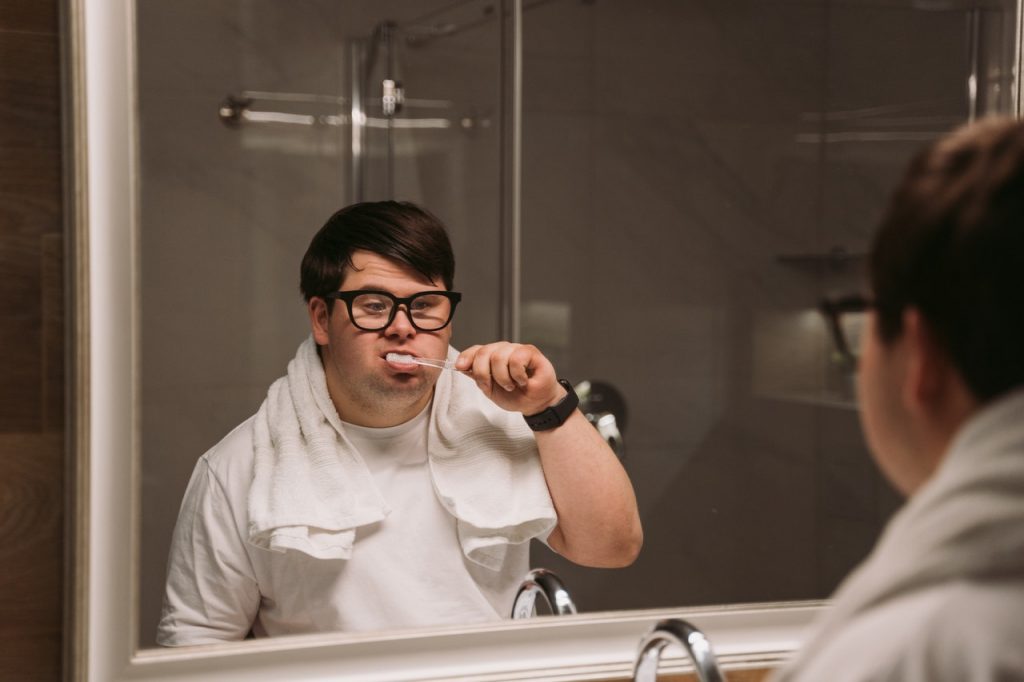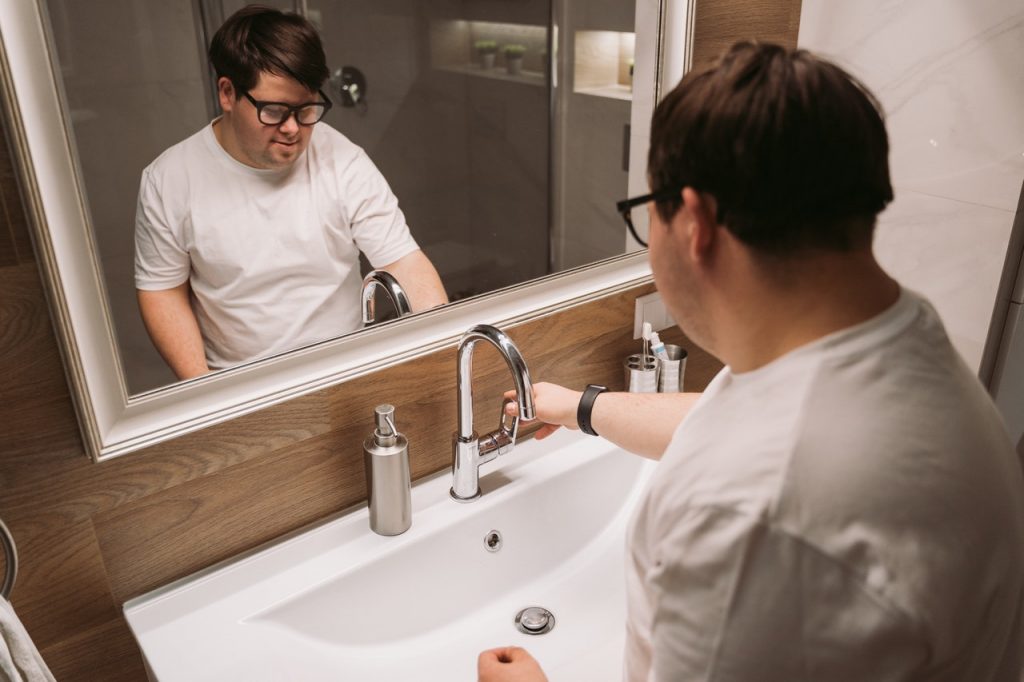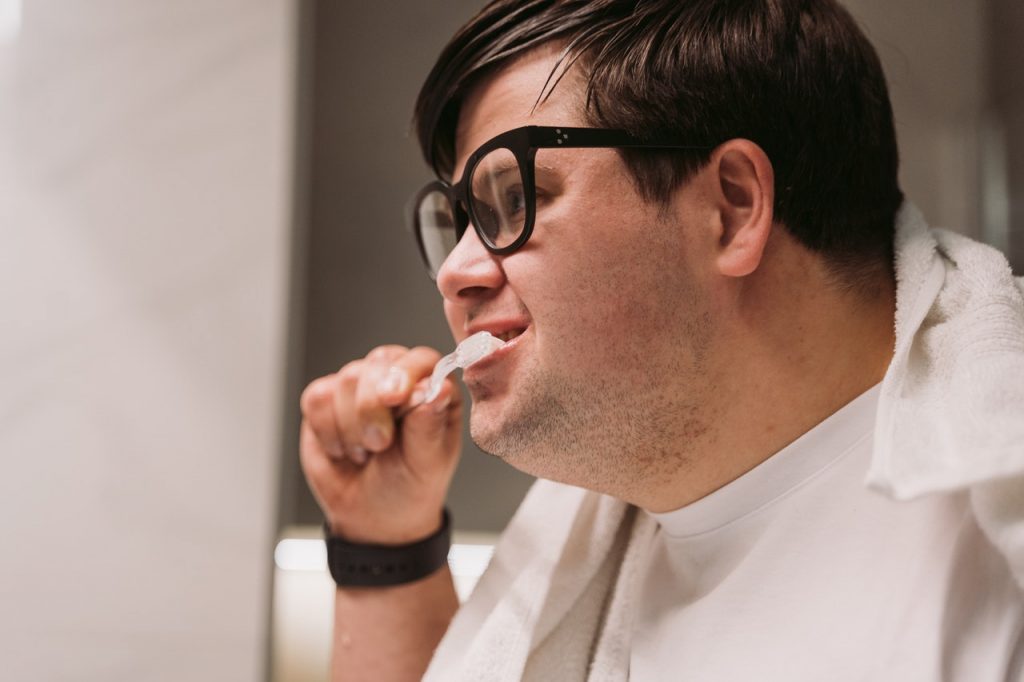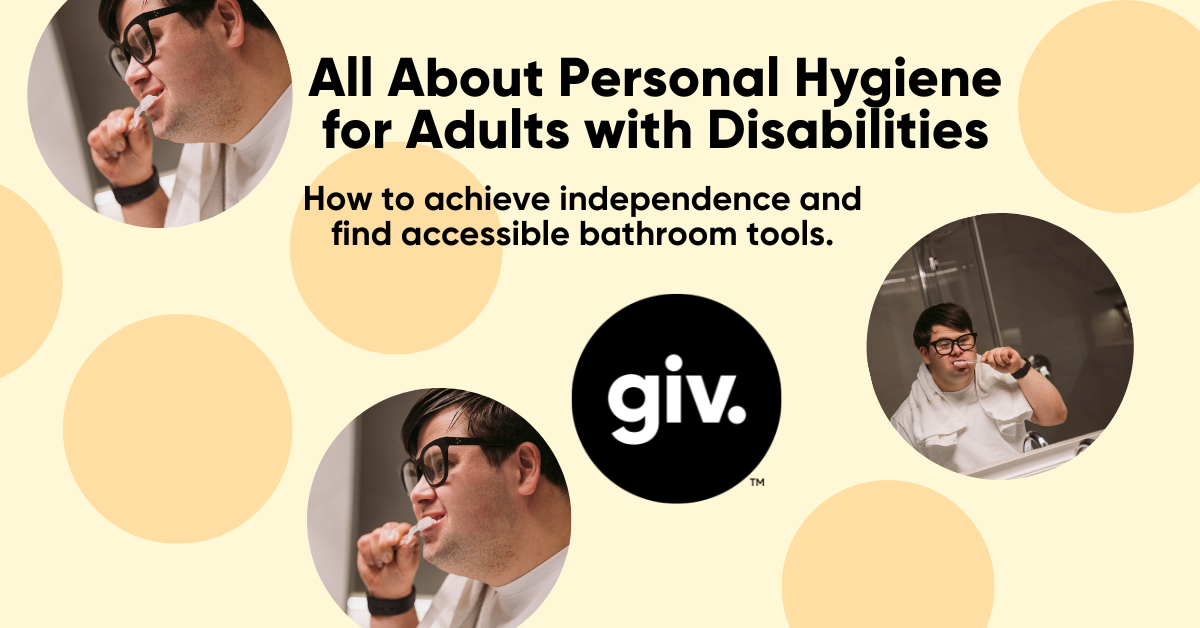Teaching personal hygiene for adults with disabilities is a crucial skill and step for them to master and gain more independence in their daily lives. It helps them to have increased dignity, privacy, and self-confidence, which is why it’s important for them to gain as much independence in this area as possible.
Benefits of Personal Hygiene for Adults with Disabilities:
There are many reasons why it is important to try and teach individuals with disabilities to be independent with their personal hygiene skills. The major reasons stem from the need for personal independence in self care tasks. Disabilityjustice.org reports that 80% of women and 30% of men with a developmental disability have been sexually assaulted. Those numbers are staggeringly high. This is why it is so crucial for family members and caregivers to teach these skills as best as possible so that they can have more privacy, dignity, and independence.
Aside from trying to prevent unwanted abuse, there are also a lot of proven mental health benefits for individuals who are able to be more independent in any area of their lives, but particularly around personal hygiene. Being independent in this area can give them a better sense of self, and self-awareness when they’re able to have this control and power over this sensitive area in their lives.

How to Teach Personal Hygiene to Adults with Disabilities:
Like many things in life that need to be learned, repetition is key. Like many things in the disability community, adaptation is also key. Try to assess the individual to get a full picture of where they’re at in terms of their ability to get dressed, shower, brush teeth, brush hair, wash face and hands, use the bathroom, etc… Once a baseline of their current abilities has been established, try to make a plan to help them become more independent.
Some ways to help them become more independent could be making a picture schedule of the order in which they should do things in the bathroom and hang it on the wall or on the mirror where they can see. If they do better with checking things off, you could laminate the lists and have them check off the items with a dry erase marker each time they complete a task.
If the individual has difficulties physically performing the tasks rather than just remembering to do the tasks in a certain order (or they could have a combination of both of these problems) look for solutions that can help them to accomplish the tasks independently despite their physical disabilities.
Another great way to teach a task is through modeling. Try modeling the activities and behaviors that you want to see the person perform. If necessary you can perform these tasks for the individual, but help them with verbal cues only as much as possible.Over time, work to be the one doing less and less of the task.

Adaptive Bathroom Products for Individuals with Disabilities:
While this isn’t an exclusive list of all the adaptable bathroom products out there, these are just a few suggestions of products that can help make the bathroom a more accessible space and give your loved one more independence. If you have products you love, we would love to hear about them in the comments at the end of this post!
Toilet Aid for Wiping:
This wand has a spot where you can attach toilet paper and use it to access hard to reach areas and be able to use the toilet more independently. This is a great option for people with physical disabilities who may lose their balance or are not able to reach properly to clean themselves after toileting.
Toothbrush Pillow:
This device holds your toothbrush in place so that you can squeeze the toothpaste onto your toothbrush with two hands if needed. It’s particularly great for small children, but can also be helpful for adults who struggle with dexterity.
Eazyhold Grips:
Eazyhold grips are amazing because they can attach to any toothbrush, cup, writing utensil, etc… This can make brushing teeth easier if the individual has a hard time grasping onto their toothbrush. This can also work well in the bathroom for makeup brushes, hair brushes, scrubbers in the shower, and a wide variety of other items!
Shower Chair:
For people who have a hard time standing a shower chair is a necessity. There are a lot of different options out there with varying levels of support. Once the individual is in a shower chair they might be able to use a hand held shower faucet to spray themselves, and wash their hair and body on their own.

Adaptive Soap and Shampoo Bottles:
These soap and shampoo bottles attach to the wall of the shower and the individual simply has to push the button at the bottom to squirt the contents into their hand or onto a washcloth. This can be much simpler than trying to navigate wet and slippery soap bottles that can easily fall out of your hand or otherwise become frustrating.
Toothpaste Dispenser:
This toothpaste dispenser mounts onto the wall and then you put your opened toothpaste tube inside it. All you need to do is press your toothbrush into the dispenser and is gives you a perfect portioned amount of toothpaste without having to deal with the toothpaste tube each day.
These are all of our best tips for teaching personal hygiene to adults with disabilities. Between modeling, picture charts, and the right adaptive tools, we hope you can have success and reach new goals in these areas!







One response to “All About Personal Hygiene for Adults with Disabilities”
Question my wife has taken care of her mentally challenged daughter for 47 years, I have been with my wife 30 years my wife is 65 I am 60 my wife has fibromyalgia and innercysticial cystitis. I have stage 4 osteoarthritis and elevated rheumatoid arthritis, I suggest a group home for her daughter because it’s to much on me now but it always starts a arguement any advice